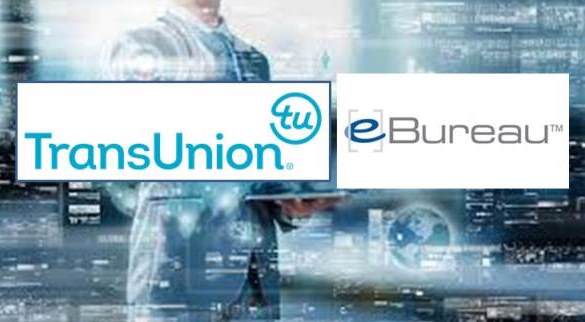 TransUnion Reinforces Versatile Data and Analytics Capabilities with Acquisition of eBureau
TransUnion Reinforces Versatile Data and Analytics Capabilities with Acquisition of eBureau
TransUnion (NYSE: TRU) announced today that it is continuing to build upon its success as a source of groundbreaking, versatile data and analytics capabilities with the acquisition of eBureau, a leading provider of custom-analytic solutions with both credit-risk and anti-fraud applications.
eBureau’s rapid-model-development platform enables financial institutions to quickly develop and deploy bespoke analytic models customized to their particular needs. A traditionally multi-month, cumbersome process can be reduced to a matter of days. In areas like fraud, this enables customers to more quickly address changes in their external environment.
The purchase allows TransUnion to accelerate eBureau’s market presence by leveraging existing TransUnion relationships with thousands of financial institutions. Additionally, TransUnion will enhance the effectiveness of eBureau’s analytics with the introduction of new data assets, leading to greater accuracy and effectiveness to promote safer lending and less fraud. The eBureau solution will be integrated into the widely acclaimed Pramasm platform, allowing lenders to move directly from market insight to action.
The acquisition will benefit customers by reducing opportunities for error, maximizing model performance and enabling tight, transparent model governance.
The acquisition closed on October 2nd, and financial terms were not disclosed.
About eBureau
eBureau was founded in 2004 and has become an industry leading provider of predictive analytic and information solutions. eBureau utilizes its patented technologies and big data assets to help businesses acquire customers, manage risks and maintain customer relationships. Our services access vast amounts of predictive data to deliver instant insights that help inform critical decisions throughout the customer lifecycle and are helping Business-to-Consumer (B2C) and Business-to-Business (B2B) companies improve profitability, boost efficiencies, reduce losses and increase revenue.
Source: TransUnion






















